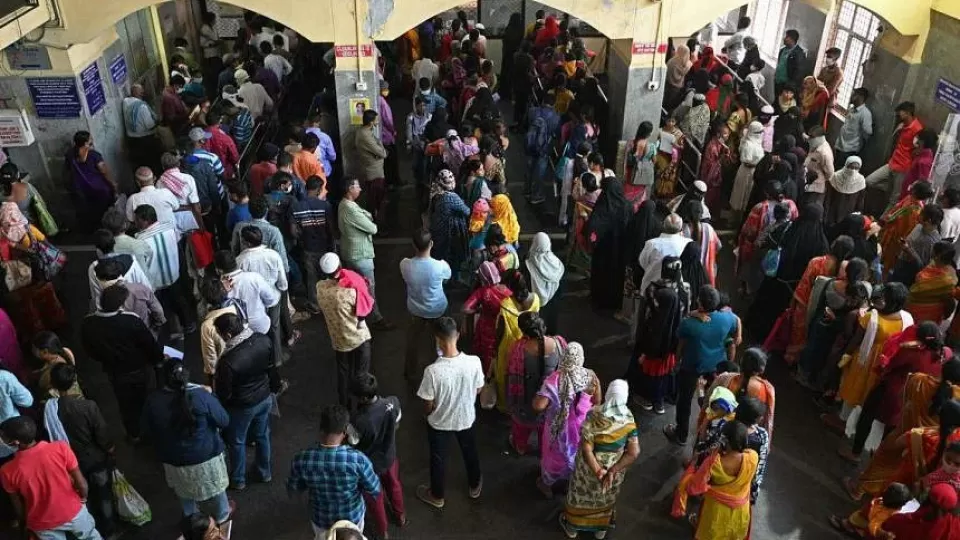April 4, 2023
NEW DELHI – India has made significant progress since the early 2000s in implementing its welfare state ideals, seeking to provide its citizens the right to food, education, employment and information. So when the northern Indian state of Rajasthan took the lead in including health to this panoply, most expected the move to be widely welcomed.
But the state’s move to legislate the Rajasthan Right to Health Bill, 2022, which was passed in the state assembly on March 21, has instead unleashed anger and chaos.
Private doctors in Rajasthan are up in arms against the government, alleging that the Bill places an unfair burden on private institutions to provide free healthcare, which should be the state’s responsibility.
The Bill, which awaits the assent of the governor to be formalised as law, makes access to healthcare a legal entitlement of every resident in the state.
A key sticking point that has emerged from the Bill is the provision of “emergency treatment and care”, including at private institutions, without “prepayment of requisite fee or charges”.
The Bill, described as the first of its kind in India in its goal to ensure availability of comprehensive healthcare services, states that private establishments will be reimbursed for any costs incurred in case a patient is unable to pay.
But it does not detail the process or timeline for such reimbursements.
Doctors demanding the Bill’s repeal have been on strike since March 19.
Most healthcare services at private hospitals in the state have been suspended, forcing Rajasthan’s residents to depend on the state’s overburdened public hospitals or travel outside the state for essential healthcare.
Dr Sunil Chugh, the Rajasthan state president for the Indian Medical Association, the country’s largest association of doctors, said private healthcare providers have experienced considerable delays for reimbursements from the state government under public health insurance programmes. Such schemes allow individuals to receive free treatment at participating private institutions.
He claimed dues worth around 440 million rupees (S$7.1 million) as at December 2019 have yet to be paid under one such state insurance scheme, while many private diagnostic service providers at public hospitals have not been paid since April 2022.
“This government track record just doesn’t inspire confidence,” Dr Chugh told The Straits Times, claiming that reimbursements are also often fixed at a quarter or lower than market rates.
Ms Chhaya Pachauli, Rajasthan state coordinator for civil society network People’s Health Movement – India, said that despite these problems, private hospitals continue to choose to participate in the state health insurance scheme because they see significant possibility of recouping costs.
“Rather than oppose the Bill in its entirety and mislead people by describing it as anti-patient, private doctors should take this as an opportunity to push for healthcare reforms, including for the model of reimbursements,” she told ST.
National President Dr. Sharad Agarwal briefing the Media about #RTH_Bill Imposed by the Government of Rajasthan on private doctors pic.twitter.com/XH0sINV11k
— Indian Medical Association (@IMAIndiaOrg) March 27, 2023
Doctors have also protested against the broad description of what can qualify as an emergency, as well as ambiguous wording on private institutions’ responsibility in shouldering healthcare services beyond emergency cases.
The Bill went through a long process of consultation and factors in several concerns from private doctors, including beefing up their presence on an oversight mechanism.
The Right to Health Bill’s noble vision to ensure no one in Rajasthan is denied treatment for lack of money has never been more relevant for India, where quality healthcare remains a luxury affordable only to the privileged and those who have sufficient insurance cover.
A 2018 government estimate stated that around 60 million Indians were pushed into poverty annually because of medical expenses. Treatment costs during the Covid-19 pandemic also saddled many with heavy loans, making middle-class Indians poor and the poor, poorer.
The Bill, according to its supporters, adds greater pressure on the state to beef up its healthcare infrastructure so that it is able to deliver on the Bill’s commitments.
“If Rajasthan, not exactly known for its good health indicators or infrastructure, can come up with such a Bill, it sets a benchmark. If a state like Rajasthan can do it, any other state can also do it,” said Ms Pachauli.
Meanwhile, as protests continue amid the state’s refusal to withdraw the Bill, voices have urged reconciliation in wider public interest.
“Having transformed a progressive ideal into law, Rajasthan should now strive to gain the trust of the doctors through demonstrable action,” wrote The Hindu newspaper in an editorial on March 30.
“It is also incumbent upon the doctors to rise above the differences, and work with the government to save human lives.”


